Mastermind Adventures has over 10 years of experience in creating games and programs for kids and teens. We’ve picked up some things along the way! With our new family D&D packages, Team Mastermind streamed a talk about their experiences.
What you should keep in mind when facilitating games with kids, teens and families.
- Establish good table etiquette before you begin
- Remember that for kids, practice makes progress
- Flexibility is your friend
In this video: Ally Sulentic, Evan Colbert LICSW, Mahria Trepes, Sarah Zietman and Arthur Velwest
Establish good table etiquette before you begin
Establishing good table etiquette is essential. This means that you should lay the ground rules for all players at the table before you dive into the story. In general tabletop RPG circles, we call this a session zero. The ‘session zero’ establishes what is most important to participants. It is an opportunity to discuss wishes as well as things they would like to avoid. It benefits everyone to have these clear boundaries when diving into collaborative storytelling.
With kids and families, this might go a step further. You may want an adventurer’s code, visuals, turn taking helpers or guidelines for parents. The need for extra support will depend on the age of the children and the players’ familiarity with the game. Try different things to see what works best at your table.
You may create your own adventurer’s code or co-write a code with your players. Our Quest! Adventure game adventurer’s code addresses things like loyalty, decision making and honor. Yours may include rules about helping a fellow players, or it may remind everyone that fun is most important (as long as their fun doesn’t ruin someone else’s fun.) If you have a lot of energetic players a “party leader” system could help. This system assigns a person to different types decisions so that each player has a chance to shine.
Your Adventurer’s Code establishes clear guidelines and consent. It makes for a better game experience for players, and it’s a great way to help develop leadership and empathy skills in participants.
Remember that for kids, practice makes progress
Pretend play is essential to the growth and development of kids and teens. Studies have found all kids need healthy pretend play for good development. When imagination is embraced and encouraged at a young age, kids’ cognitive skills improve over time.
The brain doesn’t distinguish between what a kid does and what they pretend to do. By exploring their creativity in RPGs, they get to embrace heroic archetypes. This encourages them to shrug off the pressures of real life and embrace risk taking in a healthy and safe way.
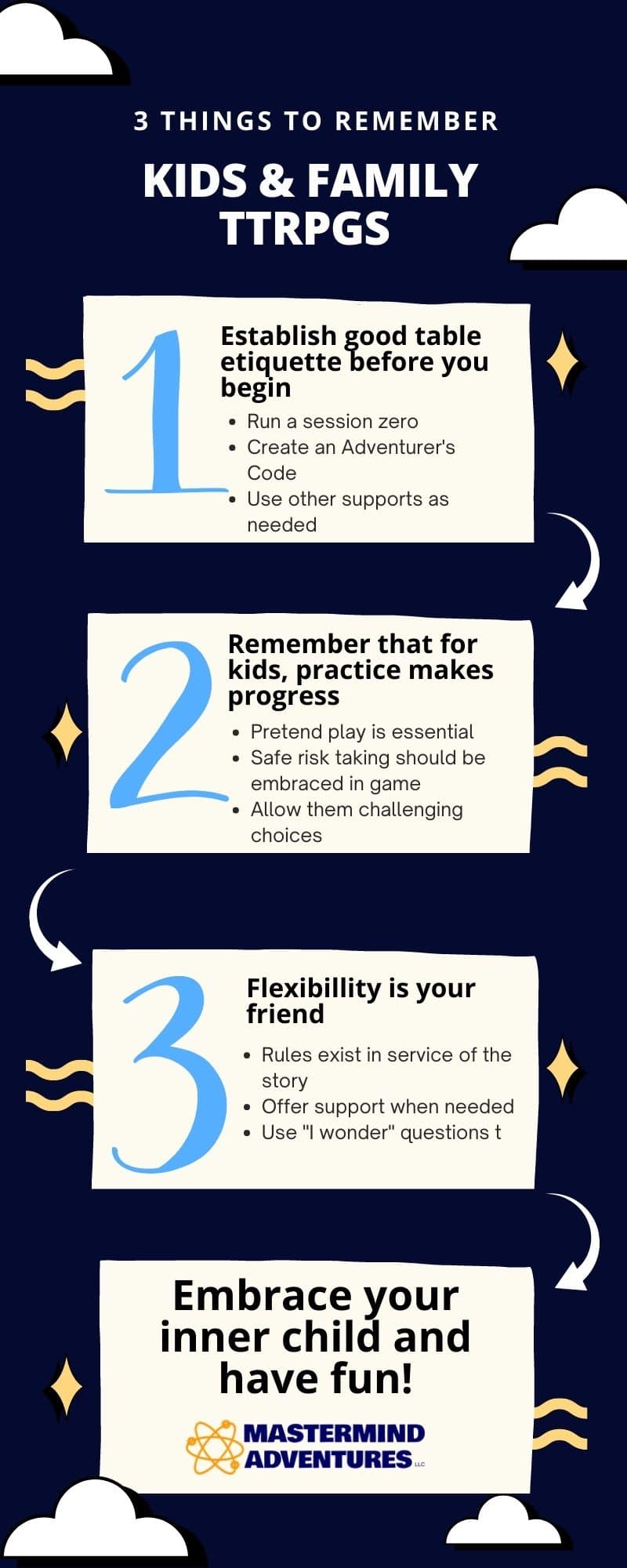
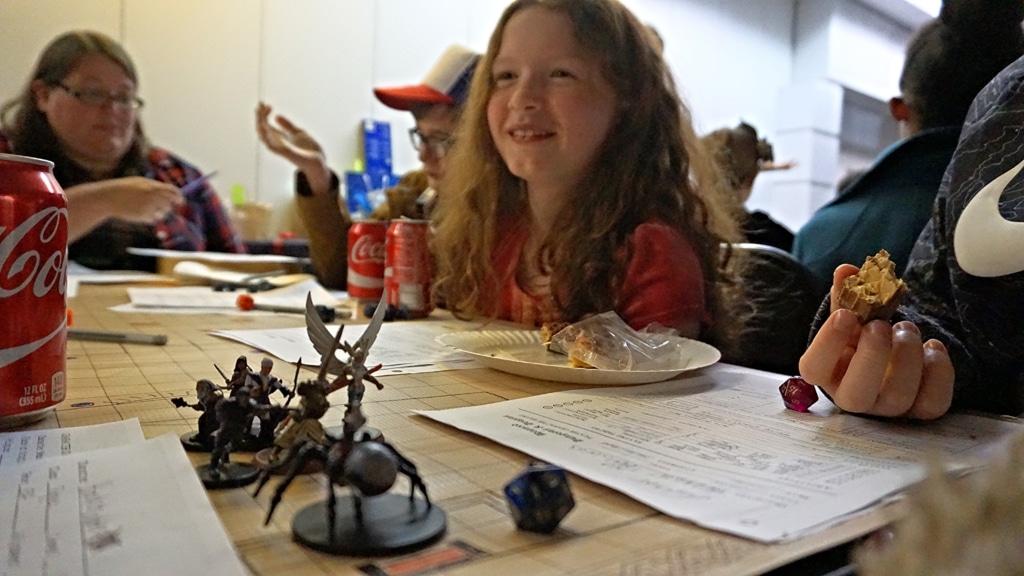
Some kids may want to try on a new personality or explore a fantastical idea that is super silly. Risk taking within the setting of a game should encouraged more often than not. Player motivations and attention spans change as they get older. But all kids care about creating a fun, exciting story.
Some RPGs have educational or social emotional goals. With these games, it’s important to create situations for kids to practice the target skill. You can lean into tried and true narrative tropes to do this if it will make a better story. Don’t be afraid of creating opportunities for them to make challenging choices. They are more likely to think outside the box and surprise you.
Flexibility is your friend
Younger kids are less likely to care about the rules of the game. If you are new to facilitating tabletop role playing games, try not to overthink your plan. Keep in mind that kids’ goals are not our goals. Let go of your idea for how it’s supposed to be. This will benefit you in the long run. It’s great to prepare, but because kids are so unpredictable and creative, you must stay flexible. Since kids don’t know what’s “right and wrong” in a RPG, all bets are off. So have fun with this and use it as an opportunity to flex your own brain! There are some fun games you can play to practice (list at end of article).
That doesn’t mean that you can’t offer support if a kid gets stuck or overwhelmed. Here are some strategies you can have in your back pocket. Ask questions of the player to guide them. Offer choices of things they might try. Let them know that they don’t have to do anything if they don’t want to.
Sometimes, players will push the limits of the game. They may test out outrageous ideas. Go along with it unless it will hurt another player’s character. You may also reflect back with “I wonder” questions to help them think through consequences (eg. “I wonder what your companions will think / feel if you [make a particular choice.]”)
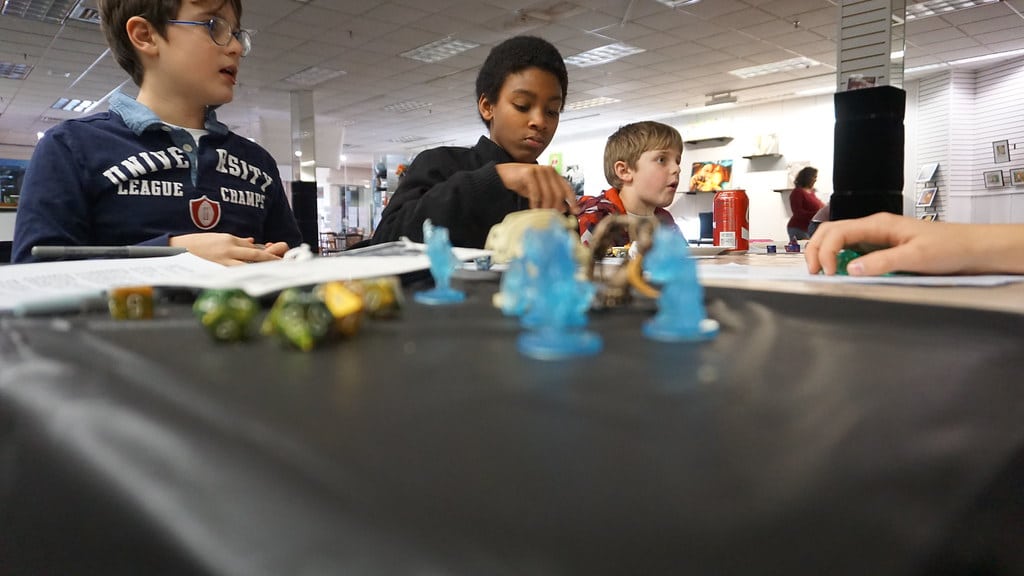
Some adults will want to rely on rules to assert some kind of control. It’s better to let go of the rules and be more flexible whenever possible. Especially if it enhances the fun of the game for everyone. Remember that with kids, allegiance is thousand times more valuable than obedience.
Final Thoughts
Facilitating tabletop role playing games for kids and families is rewarding. If you’ve never tried it before, don’t worry. Commune with your inner child, stay flexible and have fun!
Some fun simple games that can help you improve your creativity as a Dungeon Master are Story Dice, Once Upon a Time, Snake Oil, Funemployed, Gloom and The Extraordinary Adventures of Baron Munchausen
If you’d like to play Dungeons & Dragons with your family or friends, but don’t know where to start, contact us! We can help.




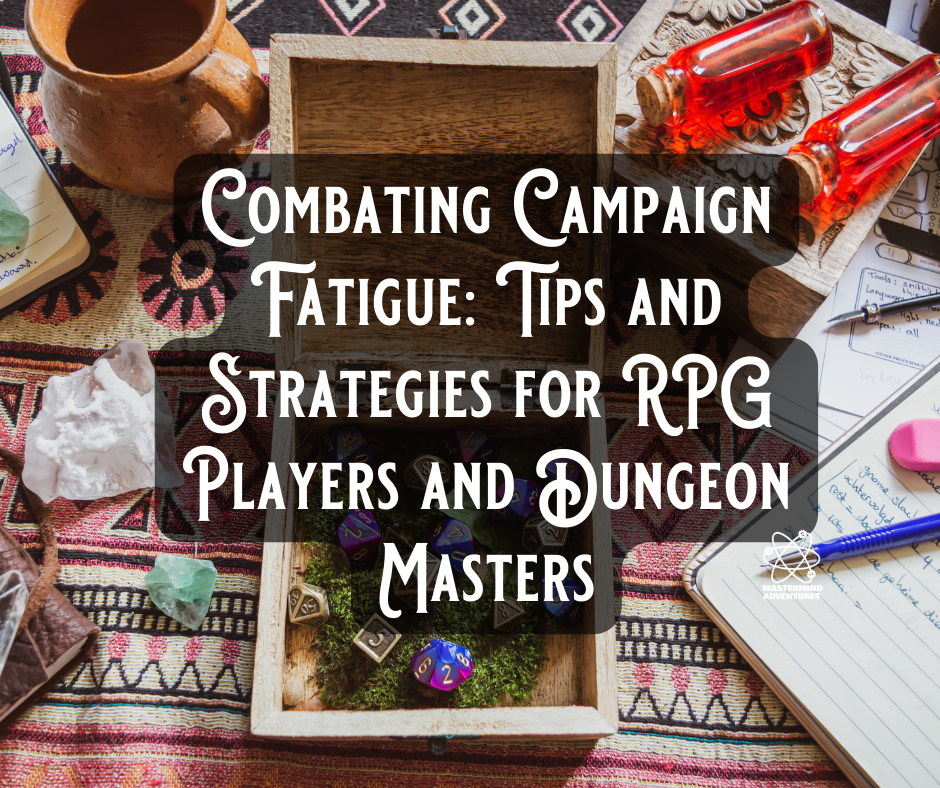


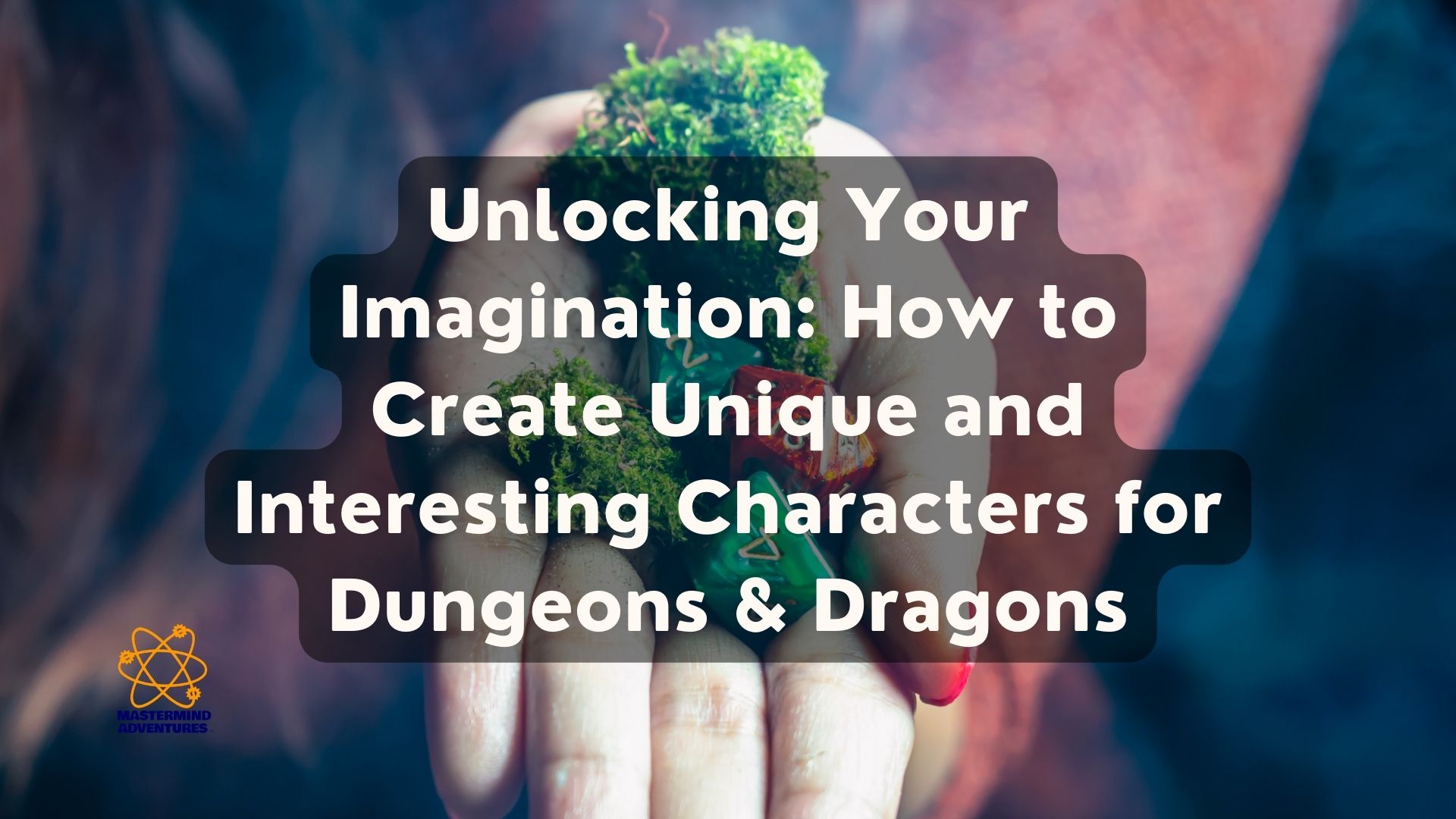
Leave A Comment